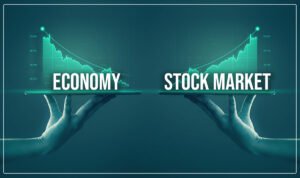Introduction to the Stock Market

The stock market is a dynamic financial ecosystem that plays a crucial role in the global economy. This article delves into the fundamentals of the stock market, exploring its definition, purpose, history, how stocks are traded, and its significance in the economy.
Definition and Purpose of the Stock Market
Definition: The stock market, also known as the equity market or share market, is a collection of markets and exchanges where the buying, selling, and issuance of shares of publicly held companies occur. These financial activities are conducted through formal exchanges (like the New York Stock Exchange or Nasdaq) or over-the-counter (OTC) marketplaces.
Purpose: The primary purposes of the stock market are:
- Capital Formation: It provides companies with access to capital to fund expansion, innovation, and other business activities by selling ownership stakes in the form of stocks.
- Investment Opportunities: It offers individuals and institutional investors the opportunity to own a part of a company and potentially earn returns through capital appreciation and dividends.
- Liquidity: It ensures that shares can be bought and sold with relative ease, providing liquidity to investors.
- Price Discovery: It helps in determining the fair price of a stock based on supply and demand dynamics.
History and Evolution of the Stock Market
The concept of the stock market dates back several centuries and has evolved significantly over time.
Early Beginnings: The origins of the stock market can be traced back to the 16th century in Amsterdam, where the Dutch East India Company issued the first shares of stock. This marked the birth of the first formal stock exchange.
17th to 18th Century: Stock markets began to emerge in other parts of Europe, including the London Stock Exchange, which was officially founded in 1801.
19th Century: The New York Stock Exchange (NYSE) was established in 1792 under the Buttonwood Agreement. This period saw the expansion of the stock market in the United States, facilitating industrial growth and the development of the American economy.
20th Century: The stock market experienced significant milestones, such as the stock market crash of 1929, which led to the Great Depression. Regulatory frameworks like the Securities Act of 1933 and the Securities Exchange Act of 1934 were introduced to protect investors and ensure fair practices.
21st Century: The advent of technology revolutionized the stock market, with the rise of electronic trading platforms and the proliferation of online brokerage services, making stock trading more accessible to the general public.
How Stocks Are Bought and Sold

Stocks are traded through various mechanisms, including exchanges, brokers, and online platforms.
Exchanges: Formal exchanges, such as the NIFTY 50, SENSEX, NYSE, Nasdaq, London Stock Exchange, and Tokyo Stock Exchange, are centralized venues where stocks are listed and traded. These exchanges provide a regulated environment ensuring transparency and security in transactions.
Brokers: Stockbrokers act as intermediaries between buyers and sellers. They can be full-service brokers offering investment advice and portfolio management, or discount brokers providing transaction services at lower costs. Traditionally, brokers executed trades on behalf of clients through physical trading floors, but today, most transactions are done electronically. Example: SBI Securities, HDFC Securities, Zerodha, Grow etc.
Online Platforms: The rise of the internet and digital technology has led to the emergence of online trading platforms. These platforms, offered by brokerage firms, enable individuals to buy and sell stocks through user-friendly interfaces, often with lower fees and real-time market data.
Role of the Stock Market in the Economy

The stock market plays a vital role in the functioning and growth of the economy:
Economic Growth: By providing companies with access to capital, the stock market enables businesses to invest in new projects, expand operations, and innovate, driving economic growth and job creation.
Wealth Generation: It allows individuals to invest their savings in profitable ventures, contributing to wealth creation and financial security. Successful investments in the stock market can significantly increase an individual’s net worth.
Indicator of Economic Health: The performance of the stock market is often considered a barometer of a country’s economic health. Rising stock prices generally indicate investor confidence and a growing economy, while declining prices may signal economic troubles.
Corporate Governance: The stock market imposes a level of accountability on publicly traded companies. Shareholders demand transparency and efficiency, leading to better corporate governance practices.
Monetary Policy Transmission: Central banks monitor and, at times, influence stock markets as part of their monetary policy. For instance, changes in interest rates can affect stock prices, impacting investment decisions and consumer spending.
Conclusion
Understanding the stock market is essential for anyone interested in investing or comprehending the broader economic landscape. From its historical roots to its modern-day complexities, the stock market remains a cornerstone of economic activity, providing a platform for capital formation, investment opportunities, and economic growth. As technology continues to evolve, the accessibility and functionality of the stock market are likely to expand, further embedding it in the fabric of the global economy.
